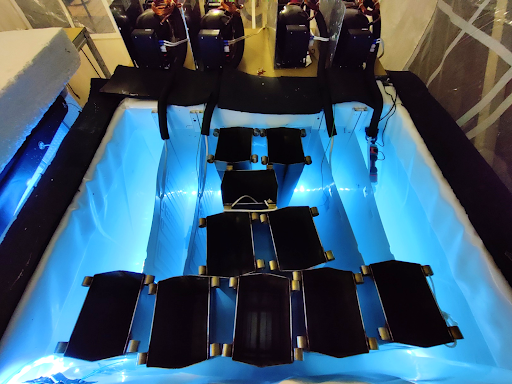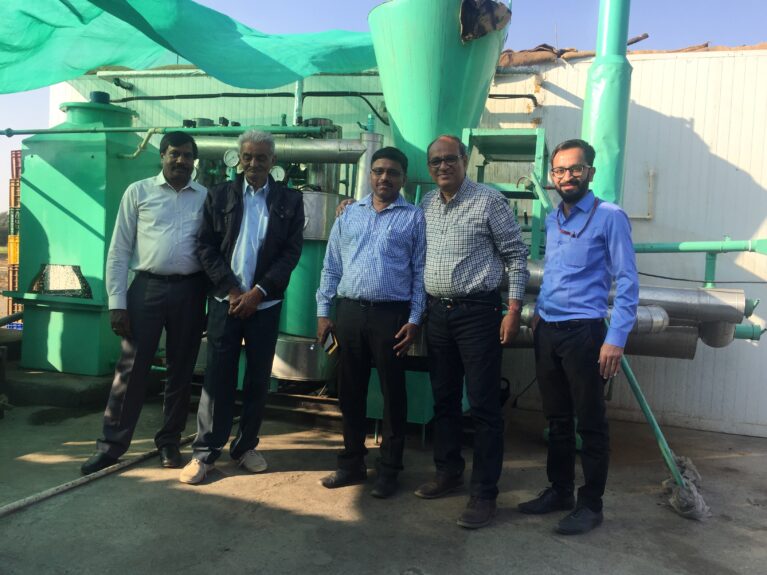Chill Challenge Teams Innovate Affordable, Portable Refrigeration Tech for Off-Grid Communities
Project Background
Refrigeration is key to both economic and social development. Refrigeration is not only critical for health and nutrition. Proper refrigeration can significantly reduce food waste, provide economic opportunities for farmers and businesses, and reduce the burden on women.
Yet there may be as many 2 billion people worldwide who lack access to reliable refrigeration. While economic growth may bring refrigeration to a large portion of this population, it will be a particularly difficult challenge for the hundreds of millions of people who will acquire electricity via “mini-grids” or “solar home systems.”

These distributed power systems are increasingly used to provide power for lighting, cell phone charging, and TV for households far from the electricity grid. The challenge is that refrigeration requires a huge leap in power and investment, and with current technology may remain out of the reach of most off-grid households for the foreseeable future.
To help address this problem, Engineers Without Borders USA launched its “Chill Challenge” in September 2019. Funded by a generous grant from the Open Philanthropy Project, the initiative was designed to complement other programs in this space.
Rather than existing refrigerators, however, the goal of the Chill Challenge was to examine innovative refrigeration technologies that might prove to be significantly cheaper. EWB-USA solicited proposals from interested researchers for grants to build and test proof-of-concept prototypes. These centered on three key design elements:
Two Design Tracks
Rather than refrigerators sized for households, the initiative solicited designs for:
- A larger, 150–250-liter refrigerator appropriate for the small shops and bars that are typically the early adopters of refrigeration in communities.
- A community icemaker capable of producing 100-1000 kg. of ice per day that could address cooling needs for households, farmers, and small businesses.
Either design needed to be powered by off-grid energy sources, be suitably reliable for a remote setting, and be transportable to the field in a small pickup truck.
All Refrigeration Technologies
The Chill Challenge initiative was open to proposals using all refrigeration technologies, including those driven by thermal energy, as well as conventional vapor compression and other electrically powered technologies. The only technologies excluded were those that would be unsafe or that used high global warming potential (GWP) refrigerants.
Focus on Affordability
Proposed designs were judged primarily on affordability. The target for the refrigerator was a total cost to own and operate of no more than $12/month, and the icemaker target was a cost of no more than $0.03 per kg of ice produced. The parameters included details for calculating costs of the various energy options available and a formula for amortizing capital costs over ten years at an interest rate of 10%/year.

In response to the Chill Challenge request for proposals, 43 teams from 10 countries submitted proposals for grants to test their refrigerator and icemaker concepts. A total of $305,000 was awarded to seven teams representing several innovative technologies. Learn more about each of the teams and their solutions here.
The pandemic delayed the work of all of the teams to some extent, but all had completed their research by the summer of 2021, and final reports were submitted by the end of the year. Several of the teams have demonstrated technologies that appear to be commercially viable! Others have reported “interesting failures” or inconclusive results that require additional evaluation.
More broadly, the initiative has also highlighted the key design factors which innovators have to consider in providing more affordable refrigeration options. Based on the work to date, community-sized icemakers appear to offer several technical and commercial advantages over refrigerators in meeting the initiative’s affordability standards. Several additional technologies also appear to merit testing in future efforts.

